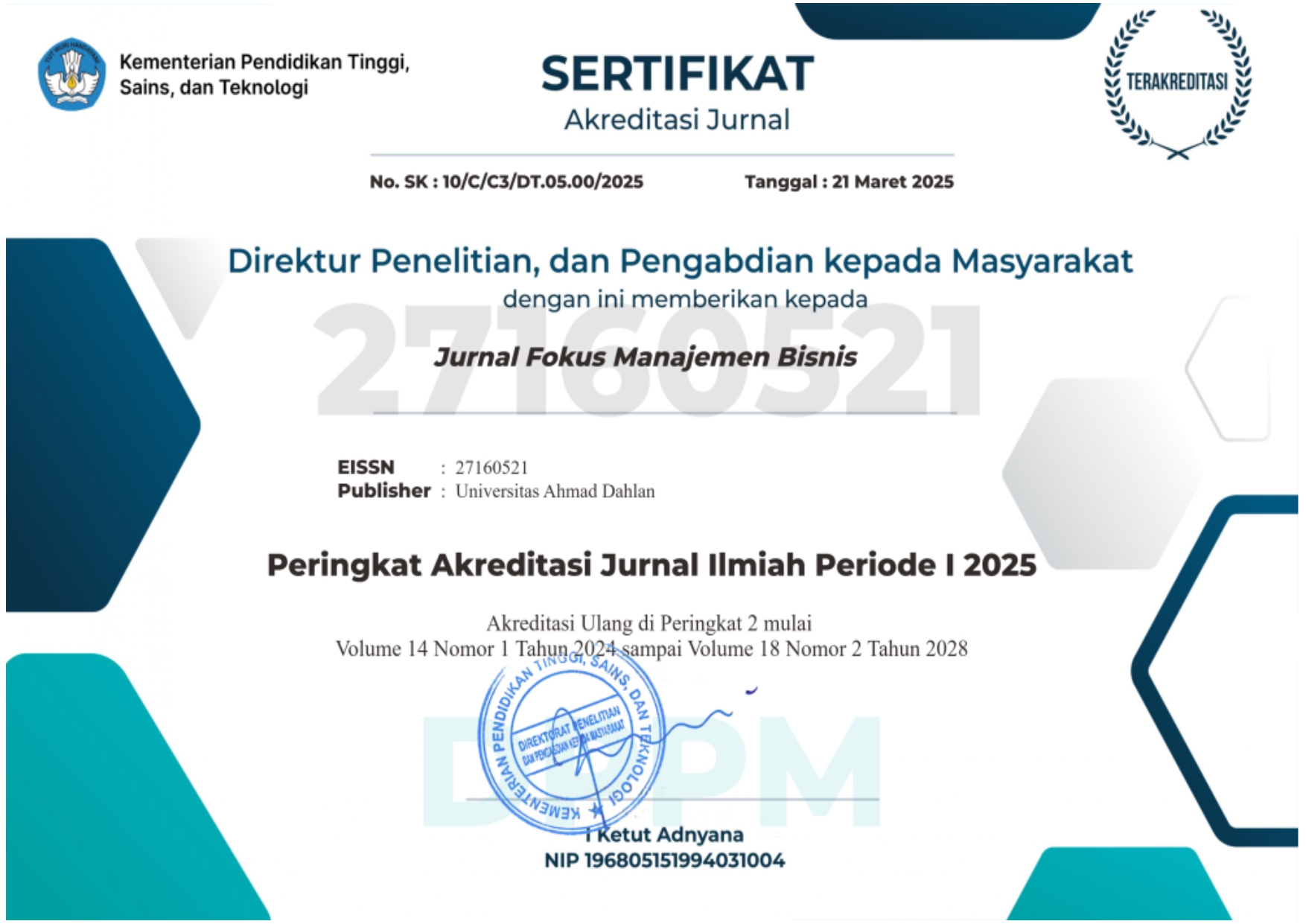PERSEPSI KONSUMEN DI KALANGAN MAHASISWA DAN MASYARAKAT UMUM TERHADAP PONSEL PINTAR MEREK BLACKBERRY DI YOGYAKARTA
DOI:
https://doi.org/10.12928/fokus.v2i1.1313Keywords:
price, quality, modelAbstract
This study titled consumer perceptions among students and the general public against the Blackberry smart phone brand in the Jogjakarta. This study aims to determine whether there are difference among students in the consumer and the general public on smart phones. The research was conducted in Yogyakarta in particular by using a questionnaire, each of 50 respondents who were sampled. By using the technique of sampling, snowball sampling. Analysis of test data used in the arithmetic mean statistic. From the survey results revealed that consumer perceptions of brand smart phone blackberry is positive, where the perception among students is better than the consumer’s perception among the general public. From the analysis of hypothesis testing concluded that the probability of > significance () means there is no difference among students in the consumer and the general public on blackberry smart phone brand. The price of smart phone based on the attribute probability value 0.540. While the quality attributes of a smart phone probability value of 0.149. And attribute value of the probability models of smart phones 0.638Downloads
Published
2012-03-31
How to Cite
Adabi, A., & Setyono, H. (2012). PERSEPSI KONSUMEN DI KALANGAN MAHASISWA DAN MASYARAKAT UMUM TERHADAP PONSEL PINTAR MEREK BLACKBERRY DI YOGYAKARTA. Jurnal Fokus Manajemen Bisnis, 2(1), 17–24. https://doi.org/10.12928/fokus.v2i1.1313
Issue
Section
Articles
License
Authors who publish with this journal agree to the following terms:Â
- Authors retain copyright and grant the journal right of first publication with the work simultaneously licensed under a Creative Commons Attribution License that allows others to share the work with an acknowledgment of the work's authorship and initial publication in this journal.
- Authors are able to enter into separate, additional contractual arrangements for the non-exclusive distribution of the journal's published version of the work (e.g., post it to an institutional repository or publish it in a book), with an acknowledgment of its initial publication in this journal.
- Authors are permitted and encouraged to post their work online (e.g., in institutional repositories or on their website) prior to and during the submission process, as it can lead to productive exchanges, as well as earlier and greater citation of published work (See The Effect of Open Access).






